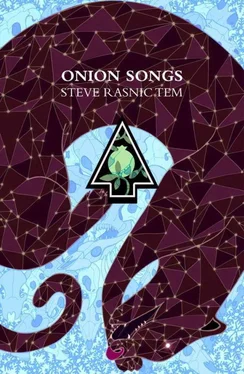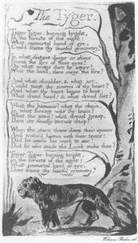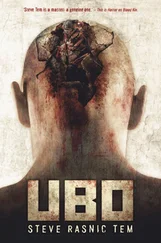“I don’t know what to do anymore,” I whisper quietly. “I don’t know how to be.”
And the faces come, and come again, to make one vast and unforgiving stare.
The house is not as I’ve remembered it all these years. The style is more modern, the living room more spacious. There is no real wood—it is all imitation grain. My mother and father seem older, grayer than any human beings I have ever met.
I have brought three college friends to see this town I grew up in, this place where my dreams came from. My friends appear startled by the lush greenness of the vegetation, the humidity, the bright sunlight through blue skies striated by wispy cloud. I know they won’t want to stay long.
I realize it is the same lot, the same location as the house I spent my childhood in, but there is a new house here. What have my parents done? Torn the original down and rebuilt according to some hopeful plan for rejuvenation? But I am afraid to ask them what has happened. I am afraid of what they might tell me.
I spend my nights roaming the halls of this new house, stepping quietly so as not to awaken my three friends, somehow knowing that my parents won’t be aroused no matter what I do. I examine several pieces of furniture each night: my father’s new, barrel-shaped liquor cabinet with the carved eagle on its front, the new refrigerator with the automatic ice-maker, the matching pieces of the never-used guest room, the ornate rugs, the new pictures on the walls—photographs of people I don’t recognize.
Occasionally I find something belonging to the old house; a piece of bathroom tile, a door stop, an old worn footstool, and once an entire yellow-papered wall that materialized in the hallway without warning. When I blink it is gone.
Malcolm had gone from London to Paris after the end of the First World War. His few remaining friends in England speculated it must have been a desperate move to escape some unhappiness. What they had not grasped was that desperation required a certain emotional investment Malcolm had not budgeted for during his remaining years on the planet. He had no intention of feeling desperation or any other strong emotion. He could see no point. If he was going to waste his time, there were activities far more interesting for his thoughtless consumption.
If anything, he’d left for aesthetic reasons. Not because Paris during that time promised so much in terms of freedom, beauty, art—he had no illusions of access to such things—but because London promised so little. Despite the post-war appearance of palatial department stores and great business houses, jobs were few and the divide between rich and poor intraversible. He’d grown tired of the slums of the east end and the architecture of ruin and rust, surfaces silky with a moist dust of unknown content, unidentifiable insects disassembling on the edges of vision. Worse than the bombs dropped by the German Zeppelins had been this devastating fusillade of failed commerce.
Of course the aesthetic background of Paris was no richer, only different: a stacked mess of darkened brick, spider-veined by wet, depthless streets where broken beggars stumbled and died. Upon reaching Paris he was possessed of few funds and he had no considered plan for their replenishment. Now and then he would work a menial restaurant job for the privilege of some laughable underpayment and the dubious benefit of glimpsing such luminaries as Picasso and Ford Madox Ford. He lived in the worst possible places, attic rooms where he could not walk upright, the ceilings decorated with the long, looping signatures of marching insects. If he grew tired of the wriggling creatures falling into his small store of food he’d burn a bit of sulphur to drive them into the next room, separated from his by the thinnest possible layer of paper and board.
“ Monstre!” boomed the voice on the other side of his flimsy door, followed by a rain of fists on wood that shook the room. “ Meurtrier!”
But instead of hiding like a child he rolled out of his bed and jerked open the door. “ Oui!”
The large bearded man hunched in the doorway, his head lowered as he peered inside. Malcolm noticed several gray insects crawling in and out of his hair, thin black legs slipping on the oily strands.
“Degaré?” Malcolm asked, recognizing him as a man he sometimes washed dishes with in the restaurants.
“ Mon Dieu! Malcolm!” He suddenly grinned. “I have bread, if you have the wine to wash it down!”
For a time they had an arrangement, but nights when Degaré had too much to drink Malcolm would always leave.
Malcolm sold some of his clothing and most of his other belongings for rent, with a few sou left over for bread and margarine, wine, cheese, some potatoes, a little coffee. The price of food had increased so drastically the past few years, bread almost three times, an egg at least five, he’d been reduced to the occasional theft and killing pigeons in the park. This was always an awkward task—having no skill with a slingshot he had to bludgeon the birds with a stick or a decaying shoe and sneak them into his apartment under his coat where he would fry and rapidly eat them. On those nights it was Degaré who left, in disgust.
He supposed he was starving himself, but frankly found the prospect more interesting than frightening. Starvation and poverty served as acute catalysts for breaking down the usual sensory boundaries. He saw things more deeply than he had in years. He only wished this new vision were of a finer resolution.
“ Animal!” Degaré would cry, whenever he saw Malcolm with a pigeon on a plate, referring to both. Malcolm thought that at least it was a clean plate, but did not present this detail in his defense. He simply took a larger bite.
Perhaps this exchange was what initially triggered the idea. Man’s dual nature: the spirit and the beast. It was a lot to chew on. It took Malcolm some months developing a theory, refining his understanding of his own impulses.
He spent most of his days in bed to preserve his strength, preferring to go out at night when Degaré was sleeping and the details of the city’s decay were somewhat wrapped in romantic shadow. He accepted that decay but did not want to be constantly exposed to it. The daylight made the city’s deterioration abundantly clear. There was no excuse for surprise, of course. A building material hadn’t been invented that would last forever— most fell far short of the mark. If all the wealth in France were focused on the single purpose of maintaining Paris in pristine condition there still would not be sufficient funds. No nation had the resources necessary to maintain a major city in such a manner. Buildings do fall apart, eventually, and it seemed to Malcolm that most of the major cities—London, Paris, New York—were failing at approximately the same time.
He felt the inevitability of the decline most obviously during late afternoon strolls through insistent rain. The Paris sky boiled down into a spoiled soup. He clamped his mouth to keep out any taste of the foul French precipitation. All around him the brick walls melted, sliding into the streets. It happened too slowly for most of its denizens to notice but Malcolm had grown acutely sensitive to the world’s steady transformation into mud. Certainly human beings were little more than that—animated mud, however they might dress themselves up. Their condition stunned them. Everywhere he looked he could see Parisians staring at him, or staring off into space. Consumption ravaged their tired flesh. They smiled at one with a smear of blood. They stared out of illness, out of insanity, out of death.
It was hardly surprising their city was maintained so poorly.
Читать дальше












